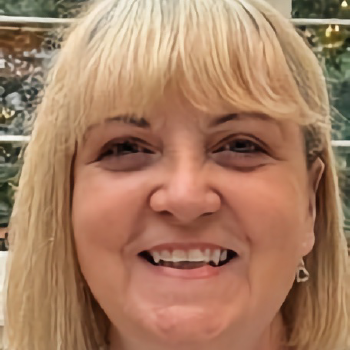Meet the Team
Introducing the Child Vision Lab team! We're a diverse group of researchers specializing in psychology, neuroscience, and ophthalmology. Our passion lies in unraveling the mysteries of childhood vision development.
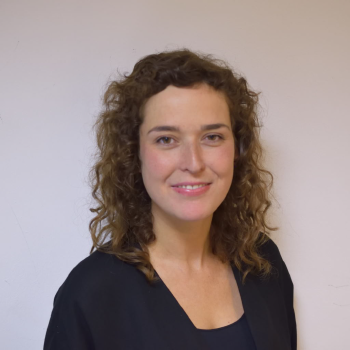
Dr Tessa Dekker
Principal Investigator
I undertook my undergraduate degree in cognitive neuroscience at the University of Amsterdam. In 2012, I obtained my PhD, funded by an EU Marie Curie Centre of Excellence Grant, at the Centre for Brain and Cognitive Development at Birkbeck, University of London, under the supervision of Prof. Marty Sereno, Prof. Denis Mareschal, and Prof. Mark Johnson.
My PhD focused on object processing in the developing brain in childhood, using functional MRI. I started my next postdoc with Dr. Marko Nardini at the UCL Institute of Ophthalmology, studying the development of sensory and motor integration, and its neural basis.
In January 2016, I became a Research Fellow at the UCL Division of Psychology and Language Sciences on an ESRC Future Leaders Fellowship, followed by a Moorfields Eye Charity Career Development Award. Since 2020, I have been working as an Associate Professor based 50/50 at Experimental Psychology at PALS, and at the Institute of Ophthalmology, where I lead the UCL Child Vision Lab.
Projects Tessa is working on:- Understanding new Treatments for Heritable Eye Disease
- Developing a Sensitive Visual System
- Exploring mental health in teenagers and young adults with vision impairment
- Growing a Connected Brain
- Investigating Internally-Generated Vision
- Studying Mental Health and Wellbeing of Parents and Children
- Supporting Teenagers to Overcome Macular Problems (STOMP)
- The Feasibility of Home Monitoring of Vision by Children
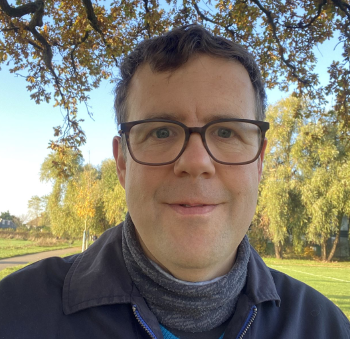
Dr Michael Crossland
Senior Research Fellow
I am a Senior Research Fellow at the UCL Institute of Ophthalmology and a specialist optometrist in low vision at Moorfields Eye Hospital.
My research interest is in the measurement and rehabilitation of vision impairment, with particular reference to the wellbeing and mental health of adolescents and young adults with low vision.
I have written more than 50 peer-reviewed journal publications and am co-author of the textbook Low Vision: Principles and Management (Dickinson, Trillo & Crossland, Elsevier, 2023). I live in West London with my family and two disobedient cats.
Projects Michael is working on:- Exploring mental health in teenagers and young adults with vision impairment
- Supporting Teenagers to Overcome Macular Problems (STOMP)
- The Feasibility of Home Monitoring of Vision by Children
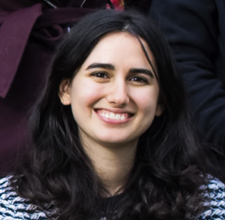
Dr Roni Maimon-Mor
Postdoctoral Researcher
I am interested in neuroplasticity, specifically the effects of sensory deprivation and restoration in clinical populations. My PhD focused on the sensorimotor system. Looking at what happens to neural hand-related resources in amputees and individuals born without hands. And which resources can be then utlisied by a prosthetic arm.
At the child vision lab I continue this direction in the visual domain looking at how deprivation due to visual impairment affects the development of the visual system and what aspects of it can be restored following gene therapy.
Projects Roni is working on: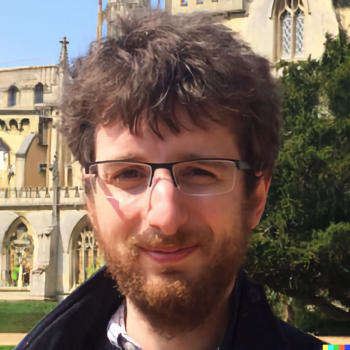
Dr Pete R. Jones
Honorary Researcher
My name is Pete Jones. I am a lecturer at City, University of London, and an honorary researcher at the UCL Child Vision Lab.
I am interested in developing functional vision tests for hard to reach populations: in particular, children. I specialise in using digital technologies, such as tablets, AR/VR, and eye tracking, to make automated sight tests that are pragmatic and easy to use. I am also interested in studying how the ability to make sensory judgments improves during childhood. Please feel free to contact me, using my details listed below.
Projects Pete is working on:- Understanding new Treatments for Heritable Eye Disease
- Developing a Sensitive Visual System
- Growing a Connected Brain
- The Feasibility of Home Monitoring of Vision by Children
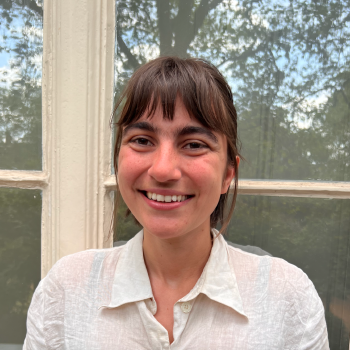
Georgia Milne
PhD Student
I’m a second-year PhD student at the Child Vision Lab, supervised by Dr Tessa Dekker, Dr John Greenwood and Dr Peter Kok.
I’m currently researching how your past experiences and expectations can shape your perception, and how this process develops across childhood and adolescence. I use hard-to-recognise images (two-tones) and sentence recordings (noise-vocoded speech) to investigate how prior information can reshape visual and auditory perception of these stimuli in adults and children, and use functional MRI to assess what activity in the brain encodes this subjective recognition.
My research interests also include metacognition, sensory integration, consciousness and machine learning models.
Projects Georgia is working on:- Developing a Sensitive Visual System
- Growing a Connected Brain
- Studying Mental Health and Wellbeing of Parents and Children
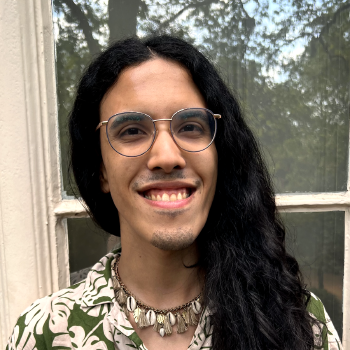
Hugo Chow-Wing-Bom
PhD Student
I joined the Child Vision Lab in 2017 as a Research Assistant and began my PhD in 2021. My background is in Neuroimaging and Vision Perception, and my research interest focuses on developing and optimizing behavioral and brain measures of visual function for both healthy and visually-impaired populations.
My PhD research centres around on investigating anatomical and functional changes beyond the retina in patients with Leber Hereditary Optic Neuropathy (LHON) and how these neural changes relate to visual function. LHON is a rare inherited retinal disease caused by mitochondrial dysfunction, leading to rapid degeneration of retinal ganglion cells and severe symptoms like central vision loss, significantly impacting patients’ quality of life. While there is currently no cure for LHON, promising gene therapies have emerged to potentially save and restore vision in these patients.
Through a combination of various MRI modalities (fMRI, qMRI, DTI), psychophysics, and biophysical modeling, I aim to gain a more comprehensive understanding of the neural mechanisms underlying LHON beyond the study of the retina alone. This research has the potential to inform gene-therapy treatments and contribute to better outcomes for LHON patients.
Projects Hugo is working on: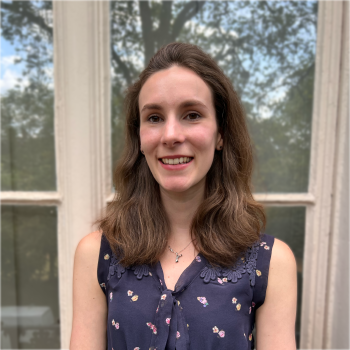
Kim Staeubli
PhD Student
I am a PhD student supervised by Dr Tessa Dekker and Prof Mariya Moosajee. After completing my BSc in Psychology at the University of Zurich in 2021, I went on to undertake my MSc in Clinical Neuroscience at University College London before joining the Child Vision Lab in 2022.
My research focuses on understanding how vision loss impacts the structure and function of our brain. My project uses advanced neuroimaging techniques, such as MRI, fMRI, and EEG, to explore the neural changes associated with inherited retinal disease, with a particular focus on retinal disease caused by mutations in the CRB1 gene. With this research, I hope to shed light on how the visual system develops and how it adapts to altered sensory input and provide insights into the efficacy of treatments for retinal disease.
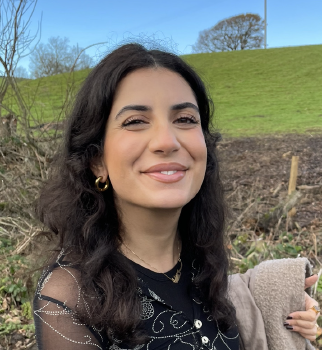
Oris Shenyan
PhD Student
I am a second year PhD student on the London Interdisciplinary Doctoral Programme. I achieved a first-class BSc in Medical Sciences in 2018 and an MSc in Cognitive Neuroscience with distinction in 2019 from UCL. Prior to starting my PhD at the Child Vision Lab, I worked as an economist within the health sector.
My PhD is supervised by Dr Tessa Dekker, Dr Jeremy Skipper and Dr John Greenwood. I use behavioural methods and fMRI to understand the neural processes underpinning visual hallucinations induced by experimental and pharmacological methods. Specifically, I am interested in the different types of visual hallucinations that people experience, how visual hallucinations differ from normal vision and imagination, and what makes some individuals more hallucinatory prone than others.
Projects Oris is working on: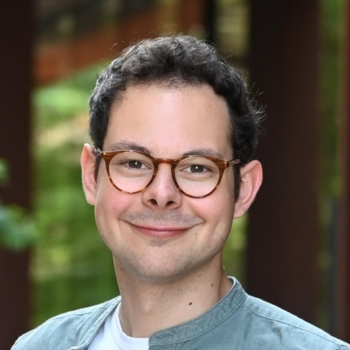
Marc Pabst
Research Assistant
I obtained a bachelor’s degree in psychology before pursuing my MSc. in Cognitive Neuroscience at the Donders Centre for Cognitive Neuroimaging. My research focus has primarily been on perception, initially exploring auditory and somatosensory signal processing before shifting my attention to vision.
Currently, I am a research assistant focusing on developing innovative methods to evaluate visual acuity in those with early-onset retinal dystrophies like Leber congenital amaurosis – a rare and debilitating eye condition causing severe vision loss shortly after birth. To contribute to the advancement of treatment options, I use neuroimaging methods and advanced digital processing techniques to investigate the impact of these diseases on the visual system and explore how novel therapies can rescue and restore vision.
Projects Marc is working on:Collaborators
- Dr Marko Nardini, Department of Psychology, Durham University
- Prof Denis Mareschal, Centre for Brain and Cognitive Development, Birkbeck College
- Prof Marty Sereno, San Diego State University
- Prof Janette Atkinson, UCL Division Psychology and Language Sciences
- Prof Oliver Braddick, Dept Experimental Psychology, University of Oxford
- Dr John Greenwood, UCL Division Psychology and Language Sciences
- Dr Sam Schwarzkopf, The University of Auckland
- Prof Michel Michaelides, UCL Institute of Ophthalmology
- Prof Patrick Yu-Wai-Man, UCL Institute of Ophthalmology and Moorfields Eye Hospital
- Dr Marc Tibber, UCL Division Psychology and Language Sciences
- Prof Peter Fonagy, UCL Division Psychology and Language Sciences
- Prof Martina Callaghan, UCL Queen Square Institute of Neurology
- Prof Fred Dick, UCL Division Psychology and Language Sciences
- Prof Tamar Makin, UCL Institute of Cognitive Neuroscience
- Dr Matteo Lisi, University of Essex
- Prof Laurence Maloney, New York University
- Prof Steven Scholte, University of Amsterdam
- Dr Iris Groen, University of Amsterdam
